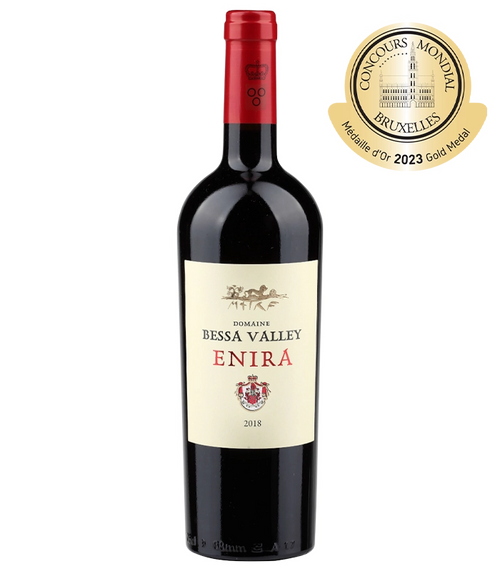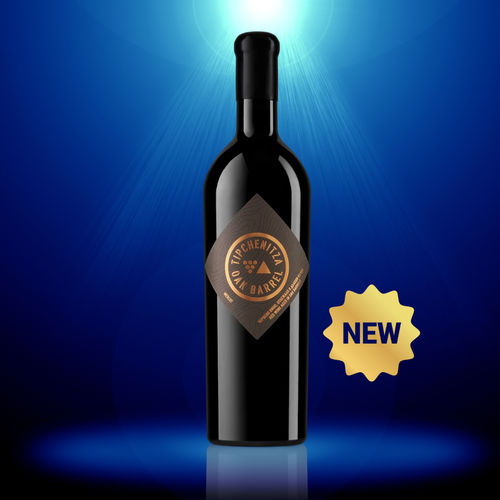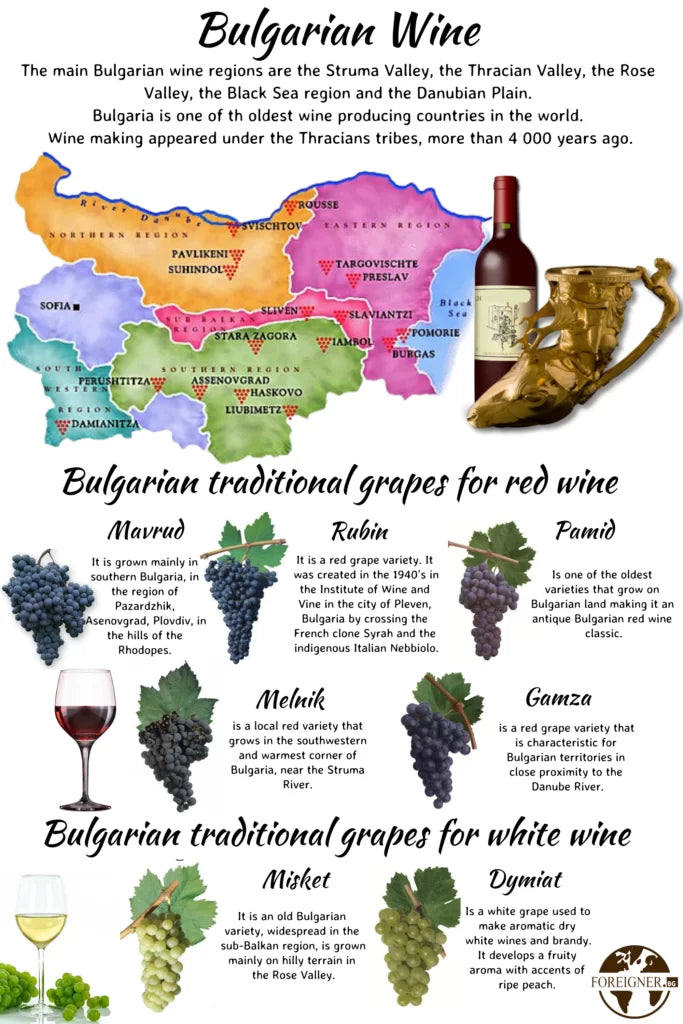Bulgarischer Wein: Ein verstecktes Juwel
Heutzutage braucht jeder ein bisschen Eskapismus. Deshalb möchten wir Sie auf eine Reise durch Zeit und Kulturen einladen. Wir führen Sie an einen Ort, der von den Weingöttern auserwählt wurde und an dem in der Antike einige der ersten Weine entstanden. Eine Weinreise nach Bulgarien – ein Land voller unentdeckter und entdeckter Schätze.


Vom kyrillischen Alphabet über seine alte Geschichte bis hin zur nationalen Küche, einschließlich seines einzigartigen Joghurts, seines nach Paradies duftenden Rosentals, in dem fast die Hälfte des weltweiten Rosenöls gewonnen wird, beeindruckt Bulgarien auf vielen Ebenen. Nicht zuletzt durch seine Weine.

Dennoch ist Wein vielleicht nicht das Erste, was Ihnen in den Sinn kommt, wenn Sie Bulgarien hören.
Außerhalb der Grenzen dieses magischen Landes verbinden nur wenige Menschen es mit Weinbautradition oder -erbe, was teilweise an einer problematischen politischen Vergangenheit liegt, die viele seiner romantisierten Weinbauwurzeln auslöschte. Die Massenproduktion in den 70er Jahren für den Export nach Russland und in den Westen in den 80er Jahren trug kaum dazu bei, die handwerkliche Weinherstellung zu fördern oder die bedeutende Rolle zu offenbaren, die Wein seit langem in der bulgarischen Kultur spielt.
Die stille Revolution in Bulgarien in den letzten 20 Jahren hat durch die Betonung moderner Stile und Terroir-bedingter Weine den Schwerpunkt erfolgreich verschoben und die Form des Marktes verändert.
Heutzutage sind die Weine des südöstlichen Landes ein Synonym für Vielfalt, preiswerte Fundstücke, einheimische Rebsorten und einzigartige Stile, die Weinliebhaber begeistern, die sich dafür entschieden haben. Diese modernen Weine sind verborgene Schätze, die nur darauf warten, entdeckt zu werden.
Aber Bulgariens Weinschätze sind sehr real und ihre Wurzeln reichen bis in die Antike zurück. Beginnen wir also am Anfang.
Ein Blick über die Schätze hinaus: die antiken Ursprünge des bulgarischen Weins
Das vielleicht bemerkenswerteste Beispiel der alten bulgarischen Weinkultur ist der 1949 in Panagjurischte (Zentralbulgarien) gefundene thrakische Schatz, der auf das späte 4. Jahrhundert v. Chr. zurückgeht. Der Schatz wurde von drei Brüdern entdeckt, die in einer Ziegelei in der Region „Merul“ in der Nähe der Stadt Panagjurischte arbeiteten . Der beeindruckende Goldschatz, der nicht weniger als 6.124 kg reines 24-karätiges Gold wiegt , besteht aus einem Satz von vier goldenen Weingefäßen, die bei Festen und Trankopfern verwendet wurden.
Das fein gearbeitete Artefakt veranschaulicht aufs Beste die wichtige Rolle des Weins in der Geschichte Bulgariens. Bereits im 4. Jahrhundert v. Chr. besaßen die Thraker über zehn völlig unterschiedlich große und geformte Weinobjekte.
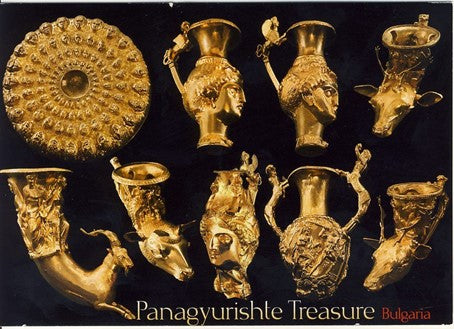

Die Thraker, die das Gebiet des heutigen Bulgariens bevölkerten, waren geschickte Winzer und Goldschmiede. Im Gegensatz zu den alten Griechen, die ihren Wein mit Wasser verdünnten, tranken die thrakischen Männer (und bemerkenswerterweise auch Frauen) unverdünnten Wein, was sie als Akt der Größe und als Zeichen eines hohen sozialen und politischen Status betrachteten, wie Platon in Der Staat beschrieb. Thrakische Aristokraten wurden mit aufwändigen Luxusgefäßen begraben. Bei zahlreichen archäologischen Untersuchungen in ganz Bulgarien wurden königliche Weinkeller entdeckt.
Es ist kein Geheimnis, dass viele der berühmtesten und renommiertesten Weinbaunationen der Alten Welt ihre Weingüter im älteren Architekturstil errichtet haben, um ein Gefühl von Tradition zu vermitteln.
Im Vergleich dazu kann Bulgarien auf eine jahrhundertealte Weinbautradition zurückblicken, die tief in den Ritualen und Traditionen des Landes verwurzelt ist und einen wesentlichen Teil seiner kulturellen Identität ausmacht. Aber wie sieht es heute aus?
Bulgarischer Wein – eine moderne Ära?

Bulgarischer Wein liegt heute zwischen der Antike und der Neuen Welt – ein Paradoxon oder eine einzigartige Mischung?
Wein wird im ganzen Land produziert, von der Donauebene im Norden über die Schwarzmeerküste im Osten, das Thrakische Tal im Süden bis hin zum Strumatal im Südwesten. Neben den internationalen Anbauflächen von Cabernet Sauvignon, Merlot, Chardonnay, Riesling und Muskat (die fast 70 % der Gesamtfläche ausmachen) bietet Bulgarien seltene, einzigartige Sorten, die von unabhängigen Weingütern gefördert werden.
Nachfolgend stellen wir Ihnen einige der besten bulgarischen Weine vor, die Sie probieren sollten.
Mavrud , die wohl berühmteste einheimische Rebsorte Bulgariens (der offizielle Internationale Mavrud-Tag ist am 26. Oktober), besitzt ausgeprägte Aromen von zerdrückten Kirschen und Schokolade bei mittlerer bis starker Körperfülle und hat das echte Potenzial, intensiv gehaltvolle und dennoch trockene Rotweine mit feinen Tanninen hervorzubringen.
Da wir wissen, dass das Thrakische Tal einer der fruchtbarsten Orte der Welt ist, laden wir Sie ein, einen der besten Mavruds von dort zu probieren. Angebaut in Brestovitsa und sorgfältig ausgewählt und hergestellt vom Weingut Bendida.
Dieses Familienweingut wird von Winzern der vierten Generation betrieben, die die Traditionen der Mavrud- und Rubin-Weine noch immer am Leben erhalten! Sie sind die einzigen, die noch den alten Mavrud aus Zweig 1 besitzen.
Variationen von 9 Monaten in französischen Fässern bis 40 Monaten in Fässern sind verfügbar :)
Probieren Sie diese Weine, Sie werden absolut beeindruckt und begeistert sein!


Ein weiterer einheimischer Wein, den Sie probieren sollten, ist Melnik 55 oder „früher Melnik“, eine genetische Kreuzung zwischen dem lokalen breitblättrigen Melnik und dem französischen Valdeguié. Melnik 55 und breitblättriger Melnik wachsen fast ausschließlich im Struma-Tal im Südwesten Bulgariens, einer Bergregion, die elegante und pfeffrige Rotweine und reine, sortenreine Weine hervorbringt, die leichter im Körper sind und mit Gamay vergleichbar sind.
Melnik 55 war insbesondere der Lieblingswein von Winston Churchill. Jedes Jahr schickte er seine Soldaten nach Bulgarien, um ihm Fässer seines Lieblingsgetränks zu bringen. Heute empfehlen wir Ihnen, Melnik 55 von Orbelia Winery zu probieren, einen köstlichen, saftigen Wein mit einem besonders langen Abgang.


Ein weiterer charakteristischer Rotwein, Rubin , ist eine erfolgreiche Kreuzung zwischen Nebbiolo und Syrah, die Ende der 1950er Jahre entstand. Der Wein ist kräuterig und pflaumenartig und weist Finesse und subtile Kaffeenoten auf. Mit zunehmendem Alter entfaltet er sein Bestes, wenn die Fruchtaromen aufblühen und die Tannine weicher werden, ähnlich wie bei einem gereiften italienischen Nebbiolo. Ein großartiges Beispiel für Rubin in seiner vollen Pracht findet sich in einer Flasche Rossidi, einem terroirorientierten Weinbauprojekt, das laut seinen Gründern auf „Integrität, Authentizität und Einzigartigkeit“ abzielt.

Der andere Rubin, der Sie völlig beeindrucken wird, ist der von Bendida Winery.
Wir haben die letzten Kartons der Family Collection 2016. Warte nicht zu lange und bestelle jetzt, solange wir noch einige Flaschen übrig haben!
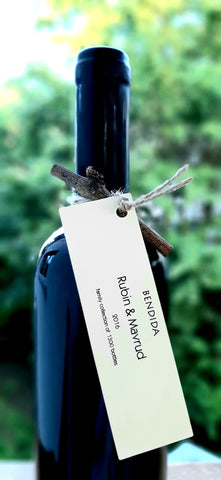
Gamza , auch bekannt als Kadarka (eine alte osteuropäische Sorte), gedeiht in kühlem Klima und ist daher sehr gut für den Nordwesten Bulgariens geeignet. Sein säuerlicher Beerengeschmack, sein pikantes Profil und eine Note von schwarzem Pfeffer und Backgewürzen lassen Vergleiche mit italienischem Barbera und Oregon Pinot Noir aufkommen. Gomotarzi Gamza von Bononia Estate, gelegen in der Donauebene, ist ein hervorragendes Beispiel. Probieren Sie es!

Misket , eine weitere alte bulgarische Rebsorte, ist am weitesten verbreitet in der wunderschönen Region des Rosentals des Landes. Als spät reifende Sorte gedeiht die Traube auf Schwemmlandböden, insbesondere rund um die Städte Karlovo, Sopot und Kazanluk. Red Misket, eine sehr aromatische Rebsorte, wird zur Herstellung hochwertiger Weißweine verwendet, obwohl ihr Name irreführend sein könnte. Die Weine neigen dazu, ausgeprägte florale Aromen mit einem Hauch tropischer Früchte zu zeigen. Ein wunderbares Beispiel ist der Rose Valley Misket AXL von Chateau Copsa, der ein komplexes Bukett mit Zitrus- und weißen Blumennoten aufweist.
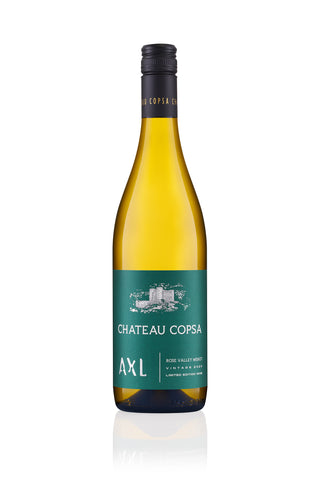
Die anderen Misket-Sorten in Bulgarien sind Varnenski Misket (benannt nach der Stadt Varna am Schwarzen Meer) und Vrachanski Misket (benannt nach einer Stadt in Nordbulgarien in der Donauebene).
Die außergewöhnlich guten Beispiele dieser beiden werden von Staro Oryahovo hergestellt, einem kleinen Weingut in der Nähe von Varna, das in Bulgarien als König der Weißweine bekannt ist.


Und zum Abschluss noch eine sommerliche Frage: Was halten Sie von Himbeeren?
In Bulgarien wird Himbeerwein immer beliebter, aber eigentlich gibt es ihn schon seit Jahrhunderten. Einer alten bulgarischen Sage zufolge bauten die Schüler der Heiligen Kyrill und Method, der Schöpfer des kyrillischen Alphabets, über einem alten thrakischen Heiligtum ein Kloster. Dort stellten die Mönche Wein aus wilden Himbeeren her. Jetzt bietet uns ein bulgarisches Weingut namens Trastena an, diese Legende wieder zu erleben (und erneut zu verkosten). Es stellt phänomenale Himbeerweine her, die Sie in sonnigere und unbeschwertere Zeiten versetzen. Diese Himbeerweine passen hervorragend zu Käse, cremigen Desserts und asiatischem Essen oder werden einfach als Aperitif oder in Cocktails mit Prosecco oder Gin Tonic genossen. Ihr perfektes Sommergetränk.


Neben der Vielfalt und Vielfalt der Aromen und Düfte, die bulgarischer Wein bietet, warten Geschichten über die Weinbautradition und die Geschichte der Schätze darauf, in einem Schluck aus einem Glas enthüllt zu werden. Mit den Worten von Benjamin Franklin: „Die Entdeckung eines Weines ist bedeutsamer als die Entdeckung eines Sternbildes.“ Dies wirft nur die Frage auf, ob Sie bereit sind, sich auf eine Entdeckungsreise ins schöne Bulgarien zu begeben. Wir hoffen, wir haben Ihnen einen weiteren Grund dafür gegeben. Wegen seiner Kultur, aber auch wegen seines Weines – ein verborgenes Juwel in mehr als einer Hinsicht.

